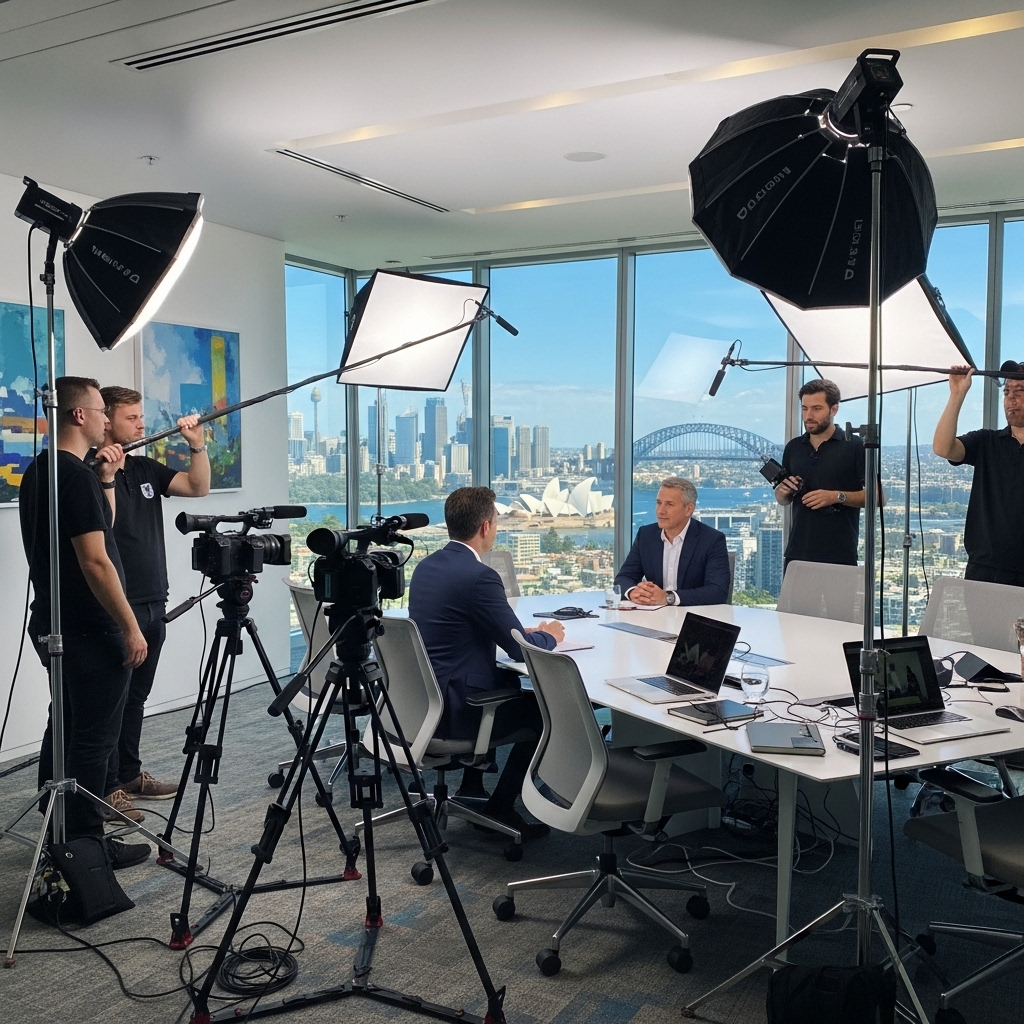Alice’s construction business was struggling to win new clients despite delivering exceptional work. Then she invested in three customer testimonial videos. Six months later, her conversion rate jumped 73% and she was turning away projects. The difference wasn’t just having testimonials – it was understanding the psychological triggers that make viewers trust, relate, and ultimately buy.
Most businesses treat testimonial videos like afterthoughts, slapping together basic talking heads without understanding why some testimonials move prospects to action while others fall flat. The secret lies in behavioral psychology, and once you unlock it, your testimonial videos become conversion machines.
The Trust Transfer Phenomenon
When a potential customer watches a testimonial video, their brain isn’t just processing information – it’s making rapid judgments about trustworthiness. Neuroscience research shows that we form trust impressions within milliseconds of seeing someone’s face. This means your testimonial subjects need to trigger what psychologists call “trust transfer” – the subconscious belief that if this person trusts your business, I can too.
The key is selecting customers who represent your ideal prospects. If you’re targeting corporate executives, feature other executives. If you serve small business owners, showcase entrepreneurs who’ve faced similar challenges. This isn’t about demographics alone – it’s about professional identity and shared experiences.

The Vulnerability Factor
Counter-intuitively, the most powerful testimonials include moments of vulnerability. When customers share their fears, doubts, or initial hesitations, it creates what psychologists call “social proof authenticity.” Viewers think: “This person is being honest about their concerns – just like I have concerns.”
We’ve filmed hundreds of testimonials, and the ones that convert best always include a moment where the customer admits they were skeptical, nervous, or unsure. This isn’t about highlighting negatives – it’s about showing the complete emotional journey from doubt to satisfaction. When prospects see this transformation, they can envision themselves making the same journey.
The Specificity Principle
Vague praise doesn’t move prospects. “They did great work” won’t convince anyone to pick up the phone. But “They delivered our office renovation three days early and $5,000 under budget, which meant we could invest in the upgraded security system we really wanted” – now you’ve got attention.
Specific details serve as mental anchors. When customers mention exact timeframes, dollar amounts, or particular benefits, it gives prospects concrete expectations. This specificity also makes the testimonial feel more genuine – anyone can say you’re “amazing,” but only real customers know the precise details of their experience.
At Zyon Films’ corporate video productions, we coach testimonial subjects to share specific outcomes, not generic compliments. The difference in viewer engagement is remarkable.
The Before-and-After Psychology
Every effective testimonial tells a transformation story, but most businesses miss the psychological power of the “before” state. Viewers need to see themselves in the customer’s original problem before they can imagine achieving the solution.
The most compelling testimonials follow this structure: specific problem → initial hesitation → decision to move forward → concrete results → emotional payoff. This narrative arc mirrors the hero’s journey that humans are hardwired to follow. When prospects see this familiar story pattern, their brains automatically project themselves as the hero of their own transformation.

Emotional Contagion in Action
Emotions are contagious, especially on video. When your customers exhibit genuine enthusiasm, relief, or satisfaction, viewers unconsciously mirror those feelings. This is why the best testimonials capture authentic emotional moments – not scripted performances.
During filming, we’ve learned to keep cameras rolling after the “official” interview ends. Often, customers will make an offhand comment or show a genuine reaction that becomes the most powerful moment in the video. These unguarded instances of emotion create the strongest connection with viewers.
The Authority Transfer Effect
When customers explain your process or methodology, they become temporary authorities on your expertise. This is incredibly powerful because prospects often trust peer explanations more than direct marketing messages. It’s third-party validation without the sales pressure.
For example, when a client explains how your construction video documentation process helped them stay on schedule, they’re not just sharing a result – they’re educating prospects about your methodology. This positions your business as expert while feeling like friendly advice.
Overcoming the Skepticism Barrier
Modern consumers are naturally skeptical of marketing messages. They assume testimonials are cherry-picked or potentially fake. The solution isn’t perfect customers – it’s authentic ones who address this skepticism directly.
The most effective testimonials we’ve produced include customers who explicitly address common objections. “I thought this would be too expensive for our budget, but…” or “I was worried about disruption to our operations, but…” These statements demonstrate that you understand and overcome real customer concerns.
The Implementation Challenge
Creating psychologically powerful testimonials requires more than pointing a camera at happy customers. You need to understand your prospects’ fears, desires, and decision-making process. Then, guide testimonial conversations to address these psychological triggers naturally.
Here’s what works: Before filming, interview your customer about their complete journey – from initial problem through final satisfaction. Identify the emotional turning points, specific results, and moments of doubt or delight. Then structure your on-camera conversation to capture these psychological elements authentically.
Remember, the goal isn’t to create perfect testimonials – it’s to create believable ones that trigger the psychological responses that lead to conversion. When you understand the mental processes happening in your prospects’ minds, you can craft testimonial videos that speak directly to those psychological needs.
Ready to harness the psychology of persuasion in your customer testimonials? At Zyon Films, we specialize in creating testimonial videos that understand both the technical and psychological elements of conversion. Our approach combines professional production with behavioral psychology insights to create videos that don’t just showcase satisfied customers – they move prospects to action.
Get in touch to discuss how we can help you create testimonial videos that tap into the psychological triggers that drive decision-making. Because when you understand what makes people trust, relate, and buy, your videos become powerful conversion tools.
